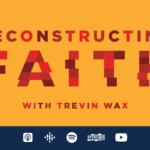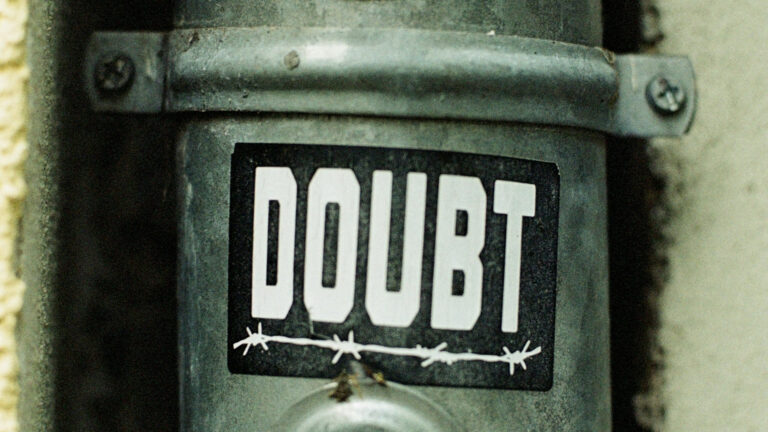I saw a funny video recently that joked about the generational shift in how we view practices of self-care and therapy.
In the old days: “You’re in therapy? What’s wrong with you?”
Today: “You’re not in therapy? What’s wrong with you?”
Joking aside, there has been a significant shift in how we view issues of mental health. Some of these changes stem from scientific and psychological studies that shed light on how humans respond to conflict and trauma. Other changes are the result of cultural trends in a therapeutic society—what Jonathan Haidt and Greg Lukianoff describe as the “Great Untruths” of fragility (“What doesn’t kill you makes you weaker”) and emotional reasoning (“Always trust your feelings”).
Pastors and church leaders aren’t immune to these developments, and I wonder if in some cases the cultural shift toward self-care has led to a new set of wrong assumptions among those just entering ministry. If the generation before me assumed the need for overworking to the point that people had to insist on self-care and say “Stop and take care of yourself before you burn out,” I wonder if the generation behind me will assume the opposite. We’ll assume the need for self-care to the point that others may need to insist on hard and strenuous labor, even when it hurts.
Bridging Generations
I sometimes call myself a “senior citizen of the millennial generation,” as my birth year places me among the oldest of this cohort. I can feel the differences between me and the millennials born a decade later, because the cultural milieu changed quickly. The internet and online connectivity moved from the peripheral (remember dial-up?) to the center of connection and communication. And trends toward therapy and self-care sped up in the intervening years, especially with Generation Z.
I’ve watched pastors and church leaders just a few years older than me burn out or flame out—with sin or breakdown following stress, overwork, and the inability to withstand pressures and conflicts. For this reason, I’ll always champion the need to prioritize physical and spiritual health. The church needs healthy members, and especially pastors, to be models of a better way. Setting boundaries, implementing new habits, finding sustainable rhythms of work and rest, understanding one’s own body and mind, watching for warning signs of overextension—these actions are vital if we’re to sustain healthy families and churches.
In a world of constant churn and productivity, where we judge ourselves by our effectiveness and efficiency, we need this reminder. We need Sabbath. We need better habits. We need to tend to our souls. I could point to a slate of recent books that center on emotional health, Sabbath rest, family practices, mindful prayer, and eliminating hurry. I’ve read them. I like them. I recommend them.
But . . . Just as some might twist God’s calling and our work into overwork and over-exhaustion that fails to recognize our human finitude and limits, others might twist the gift of self-care into self-absorption, or even just laziness. We might fall for the idea that hard work in itself—whenever it’s difficult or painful or exhausting—is inherently damaging or is a sign something’s wrong.
Discomfort in Ministry
There’s a grind to pastoring, like there’s a grind to all sorts of other jobs. We’ll experience conflict, disagreement, and discomfort in the church because the church is full of people. Just look at the apostle Paul’s description of ministry. He talks about beating his body and bringing it into submission (1 Cor. 9:27), his hard work as an apostle (1 Cor. 15:10), his suffering on behalf of his people (Col. 1:24; 2 Cor. 11:24–29), and being “spent” (2 Cor. 12:15) as he strenuously contends with all his energy (Col. 1:29). He described himself as being “poured out as a drink offering” (Phil. 2:17).
Leadership will sometimes involve conflict. Not all conflict is abuse. Not all discomfort is trauma. Discomfort is ministry. There is no ministry—real ministry—without discomfort, at least at some level.
The only way to get through life without being disturbed is to be completely alone. Love requires disturbance. Ministry requires work—hard work. We live in a world of thorns and thistles, and no mindfulness app or meditation practice will remove all the effects of the fall. Some of us sin by overwork and some of us sin by underwork, but both are fallen responses to the good gift of labor. The answer to one sin is not a different sin.
Generational Assumptions
My sense is some of my middle-aged friends and colleagues in ministry harm themselves by too quickly dismissing the advocates of self-care, healthier habits, and more sustainable rhythms. But I fear that some of my younger friends and colleagues just starting out in ministry will harm themselves by holding to unrealistic expectations about the nature of work and self-fulfillment.
The recent push toward self-care is designed for men and women who assume the long hours, hard work, overextension, and burdens of ministry are just par for the course—an element of what it means to fulfill God’s calling on your life. But what happens when the assumptions are reversed? When the push toward self-care is heeded by people who assume they owe it to themselves and to the world around them to take care of themselves first and foremost, no matter how long or how much that takes, or how much the ministry struggles and suffers in the meantime?
This is when a good thing like self-care gets twisted into inordinate self-focus, to the point that our calling isn’t to the ministry with the care of self as an important element in how we seek spiritual health, but our calling is to ourselves with the ministry as an add-on.
The solution to one generation’s overwork is not the next generation’s underwork. The solution to one generation’s lack of self-care is not the next generation’s self-absorption. The ruthless elimination of hurry (a glorious aspiration) does not mean the ruthless elimination of discomfort in our work. (When someone new to ministry decides after a few months they’re nearing burnout and need a sabbatical, I’m tempted to say, “Burnout? You haven’t even burned!”)
So let’s be careful here. We shouldn’t assume the next generation is entering the workforce and ministry with the same assumptions as the previous generation. Unhealthy, imbalanced approaches that deserve critique and require alteration come in different forms. Let’s not assume one generation’s struggles apply to the next.
If you would like my future articles sent to your email, as well as a curated list of books, podcasts, and helpful links I find online, enter your address.

















